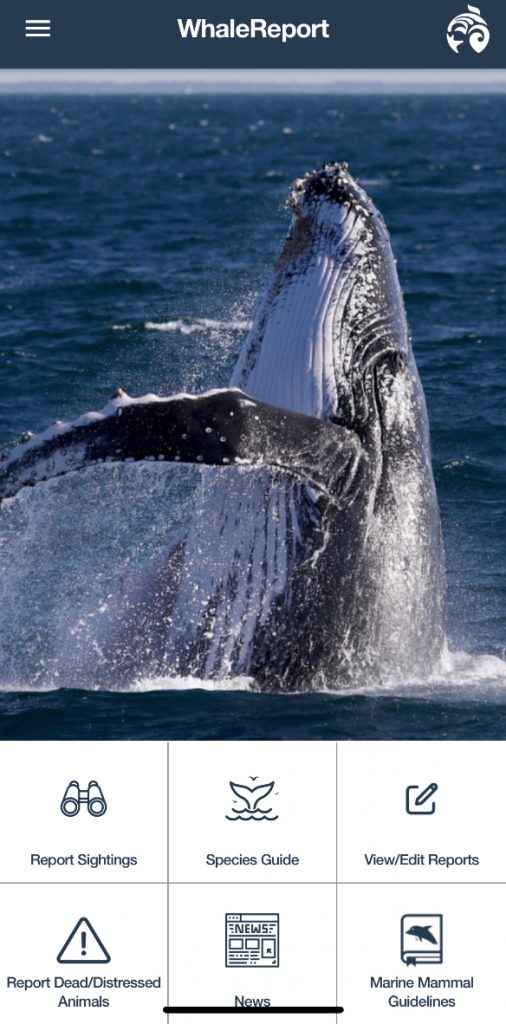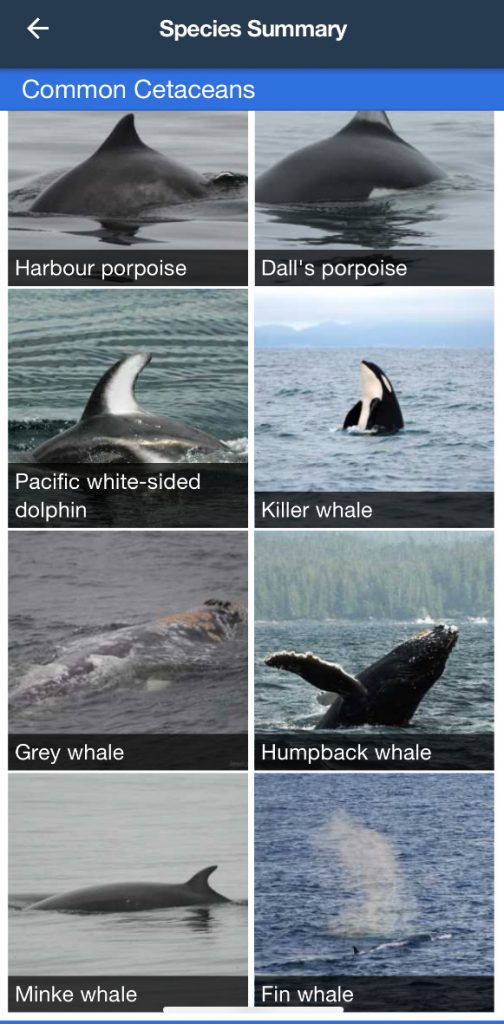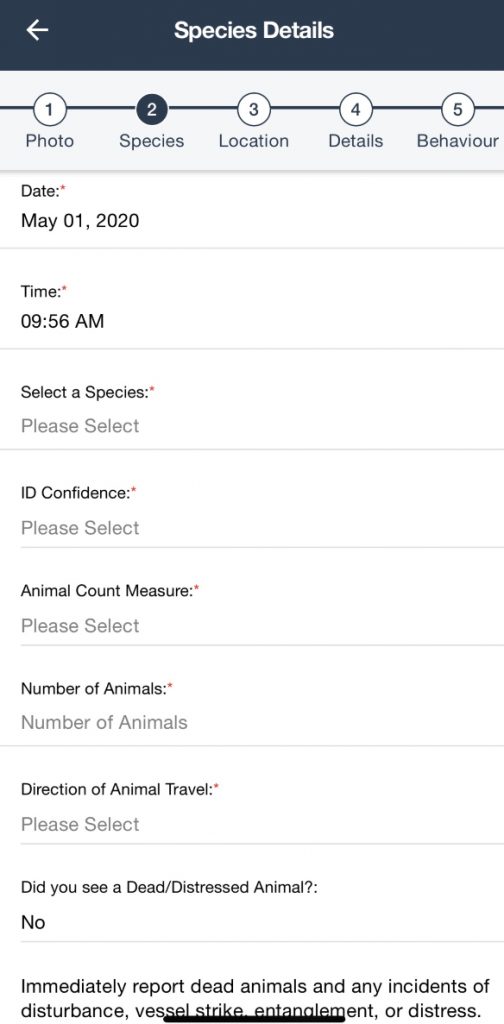In an effort to support Southern Resident killer whale (SRKW) recovery, the Canadian federal government initiated Interim Whale Sanctuary zones in the Salish Sea in 2019 to provide safe zones where the endangered SRKW forage. In doing so, it became apparent that consistent data on the number of whale transits in our region was lacking. Saturna resident Susie Washington Smyth initiated a SIMRES pilot project for local residents to report all whale and porpoise sightings. It was a highly successful project, has grown to become the Southern Gulf Islands Whale Sightings Network (SGIWSN) including Pender, Mayne and Galiano Islands. Residents are now able to report sightings through a dedicated portal on the Wild Whales app from Ocean Wise.
This data is extremely useful for research, compliance, and enforcement in and around the SRKW Sanctuary Zones and elsewhere in the waters around Saturna. The collected data is transferred to the Department of Fisheries & Oceans (DFO) Science & Research, Transport Canada and the Port of Vancouver ECHO program, and is available to all whale researchers. As the data collection grows, we are improving our anecdotal numbers with more reliable statistics and improving enforcement of the sanctuary zone.



While anyone can report sightings on the Whale Report app, we encourage local users to register with SGIWSN to ensure consistency in reporting data.
The Whale Report app can be downloaded onto your mobile device or tablet from the App Store or the Wild Whales website (iOS or Android). Through the app, all your sightings will be listed and accessible on your device as a log.
If you would like to participate in this citizen science project, please contact us for more information. Learn more about Wild Whales. To learn more about the Whale Sanctuary Zones, click here.
The pilot project was sponsored by the Saturna Island Marine Research and Education Society (SIMRES), the Saturna Environmental Education Centre (SEEC) and the Saturna Island Parks Liaison Committee (SIPLC).
Subscribe our Newsletter
Subscribe our Newsletter